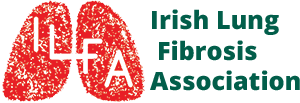PRACTICAL HELP / Social Worker
How the Hospital Social Worker can help
The role of the Social Worker varies depending on what the setting they are working in, but what connects them all is the approach they take to problem solving, and to helping patients and families cope with various issues that can be challenging and life-changing.
Social Workers take the biological, psychological and social needs of the patient into account.
The biological aspect involves asking how lung fibrosis will affect a person’s ability to interact with their physical environment. Are practical supports going to be required in the home? Will the hands-on support of family and friends be needed? Will community support services going to be needed?
The social worker also has a role in identifying information resources that might be useful for patients and families trying to cope with a particular issue.
The psychological aspect deals with the person’s emotional wellbeing. Having a chronic or debilitating illness such as lung fibrosis, can present many challenges so looking at the person’s coping mechanisms and how they are doing is important. Depression is common with lung fibrosis, and monitoring patients responses, stress levels and mood might also be needed.
Patients undergoing transplant assessment and those on the transplant list also face a whole range of uncertainty for example, being accepted on the transplant list, getting a donor match, waiting times etc. which can be very stressful and social works can help patients with their concerns.
The social aspect focuses on identifying how particular problems affects our relationships. Maintaining social relationships can be particularly challenging if you are not able to go continue to meet friends or go to social events. Relationships within families may have to be redefined especially if the patient can no longer work due to illness. This can have a profound effect on a person’s self-esteem.
As well as helping patients deal with the emotional aspects of an illness, the social worker can help with the practical side of things, for example with social welfare services, with housing and housing alterations, and with activities of daily living. All of these things can be affected by having a chronic condition like lung fibrosis.
By putting all of these perspectives together, the social worker can get a clear understanding of what important issues need to be addressed for individual patients.
Essentially the Social Worker has two main roles;
- Giving advice, imparting information and acting as a referral service to other agencies that might be of help.
- Providing formal counselling. Informal counselling takes place all the time in families but formal counselling has the advantage that it enables people to raise issues that they might be difficult to talk about in the family setting, such as the impact of a life-threatening illness.
In the hospital setting, the social worker will carry out a psychosocial assessment to establish how the patient is coping; what are the issues and problems they are currently facing; what are the priorities for them to deal with, are there any issues that might benefit from counselling or if there are any practical issues that need to be addressed.
Social Workers also act as patient advocates, for example if you are having difficulty with a housing grant sometimes a letter from the Social Worker can help to speed things up. The Social Worker can also provide a link to community services like home help services, home nursing, care attendants, if and when they are required.
The Social Worker in the hospital is available both to in-patients and out-patients. Ask your medical team to put you in touch with the social worker if necessary.
Back to Practical Help
